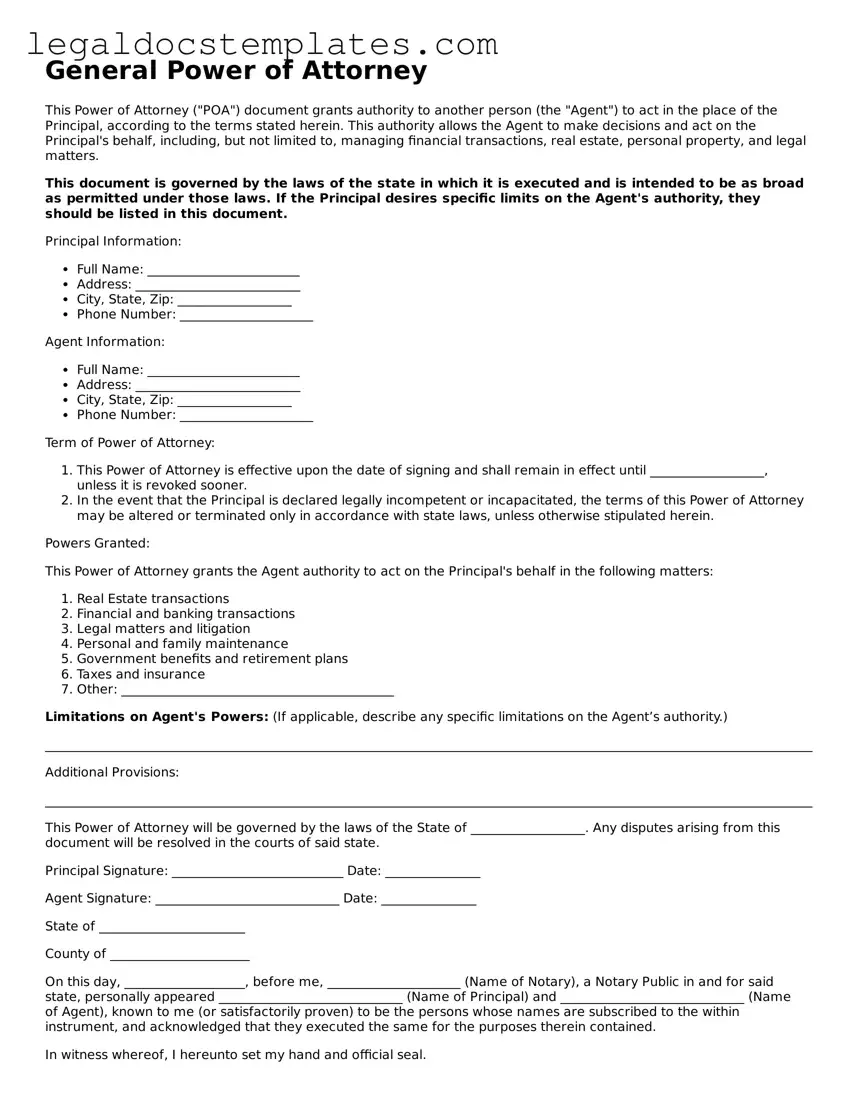General Power of Attorney
This Power of Attorney ("POA") document grants authority to another person (the "Agent") to act in the place of the Principal, according to the terms stated herein. This authority allows the Agent to make decisions and act on the Principal's behalf, including, but not limited to, managing financial transactions, real estate, personal property, and legal matters.
This document is governed by the laws of the state in which it is executed and is intended to be as broad as permitted under those laws. If the Principal desires specific limits on the Agent's authority, they should be listed in this document.
Principal Information:
- Full Name: ________________________
- Address: __________________________
- City, State, Zip: __________________
- Phone Number: _____________________
Agent Information:
- Full Name: ________________________
- Address: __________________________
- City, State, Zip: __________________
- Phone Number: _____________________
Term of Power of Attorney:
- This Power of Attorney is effective upon the date of signing and shall remain in effect until __________________, unless it is revoked sooner.
- In the event that the Principal is declared legally incompetent or incapacitated, the terms of this Power of Attorney may be altered or terminated only in accordance with state laws, unless otherwise stipulated herein.
Powers Granted:
This Power of Attorney grants the Agent authority to act on the Principal's behalf in the following matters:
- Real Estate transactions
- Financial and banking transactions
- Legal matters and litigation
- Personal and family maintenance
- Government benefits and retirement plans
- Taxes and insurance
- Other: ___________________________________________
Limitations on Agent's Powers: (If applicable, describe any specific limitations on the Agent’s authority.)
_________________________________________________________________________________________________________________________
Additional Provisions:
_________________________________________________________________________________________________________________________
This Power of Attorney will be governed by the laws of the State of __________________. Any disputes arising from this document will be resolved in the courts of said state.
Principal Signature: ___________________________ Date: _______________
Agent Signature: _____________________________ Date: _______________
State of _______________________
County of ______________________
On this day, ___________________, before me, _____________________ (Name of Notary), a Notary Public in and for said state, personally appeared _____________________________ (Name of Principal) and _____________________________ (Name of Agent), known to me (or satisfactorily proven) to be the persons whose names are subscribed to the within instrument, and acknowledged that they executed the same for the purposes therein contained.
In witness whereof, I hereunto set my hand and official seal.
Notary Signature: ___________________________ Date: _______________
(Seal)

